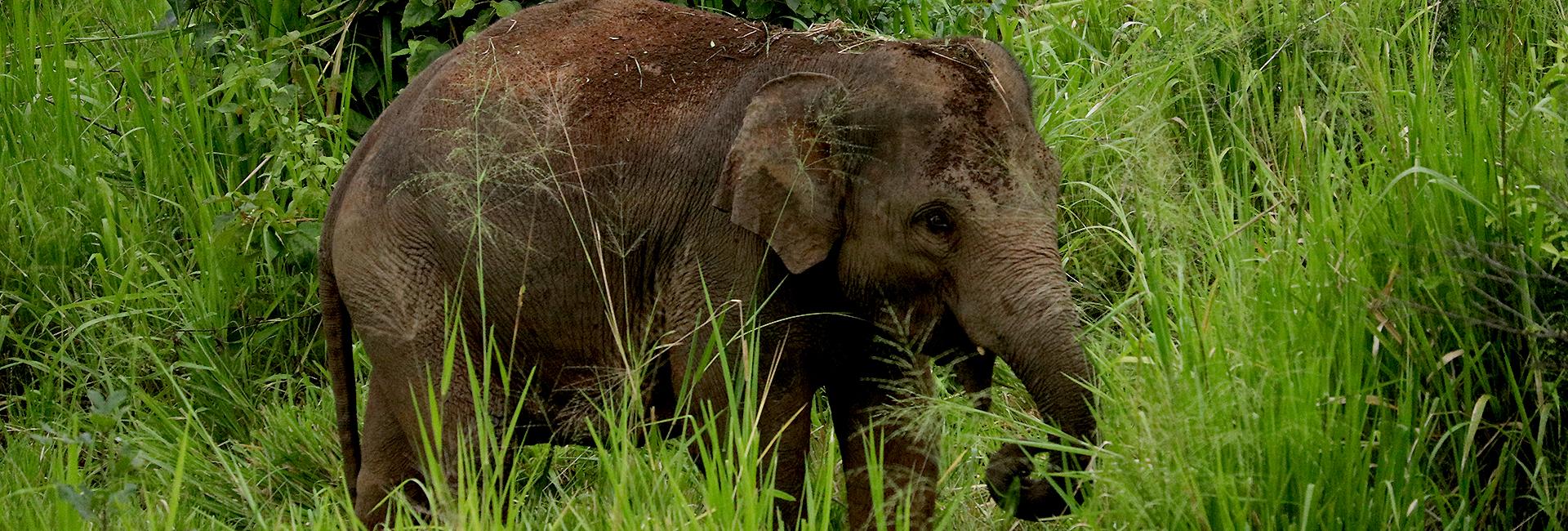The mission of The Great Elephant Project is to, quite literally, save elephants by helping people. Every year, around 200 elephants and between 60-80 people are killed as a direct result of human-elephant conflict (HEC) in Sri Lanka. HEC is sadly not the only threat that elephants face in the country.

Sri Lanka is home to the most trafficked animal on the planet: the pangolin, and as the same forests play host to leopards, wild boars and various species of deer, the poaching of wildlife is rife. Despite the insatiable demand for ivory on the black market, elephants are not the primary target for poachers in Sri Lanka, but the giants all too often fall victim to the illegal poaching trade.
A type of snare trap that poachers set involves the firing of a gun, and when the elephant walks through, it will be shot in the legs multiple times. As a result, the elephant cannot walk, cannot forage, and thus cannot survive. An elephant who gets caught in this kind of snare trap will often starve to death.

It is easy to think badly of poachers, assume they are evil people who hunt for pleasure with no consideration of the defenceless animals they seek. However, this is not always necessarily the case. Particularly in third-world countries, money is hard to come by, yet there are always hungry mouths to feed. In many places, the man is still expected to be the main bread-winner of the family and sometimes poaching is their only option to earn – to kill an animal is a horrifying act, but when there are starving children at stake, such a choice becomes altogether more complex.
This is where projects such as The Great Elephant Project consistently prove their efforts are paying off, and they are true to their ethos through and through. There are 3 permanent staff members working at The Great Elephant Project who are, in fact, reformed poachers.
Meet Mama.

In Sinhala, one of Sri Lanka’s native tongues, Mama means ‘uncle’ and he is the watchman of the volunteer field house. He ensures all volunteers are safe and that the field house is secure. Most recently, Mama employed the help of a puppy who will soon go off to train at guard-dog school!
This is Veejay.

Veejay helps out with keeping the grounds at the volunteer house and also wakes up most mornings to assist taking the children to school via the Elebus, a free service that prevents children having to travel through an elephant corridor. He lives in the village with his wife and children, but also enjoys spending time with Syria, and both have a habit of playing tricks on each other!
Silly Syria!

Syria is part-time field assistant, full-time prankster. His favourite pastime is flicking volunteers in the back of the head as he walks past, then pretending like he did nothing at all! He is also very handy with crafts and has a talent for making beautiful bracelets made out of grass for volunteers.
The project offered them a way out, an alternate way of earning cash to support their families, all whilst helping to protect the legacy of their homelands, which is Sri Lanka's incredible wildlife. The three men are extremely hard working, they rise with the sun and end the day long after it has set. Despite their history, they are a fundamental component of the foundation of the project and care just as deeply about the wildlife they work to protect as much as volunteers.
If you would like to be in with a chance of meeting these lovely fellows in the flesh, then take a closer look at the project page.














